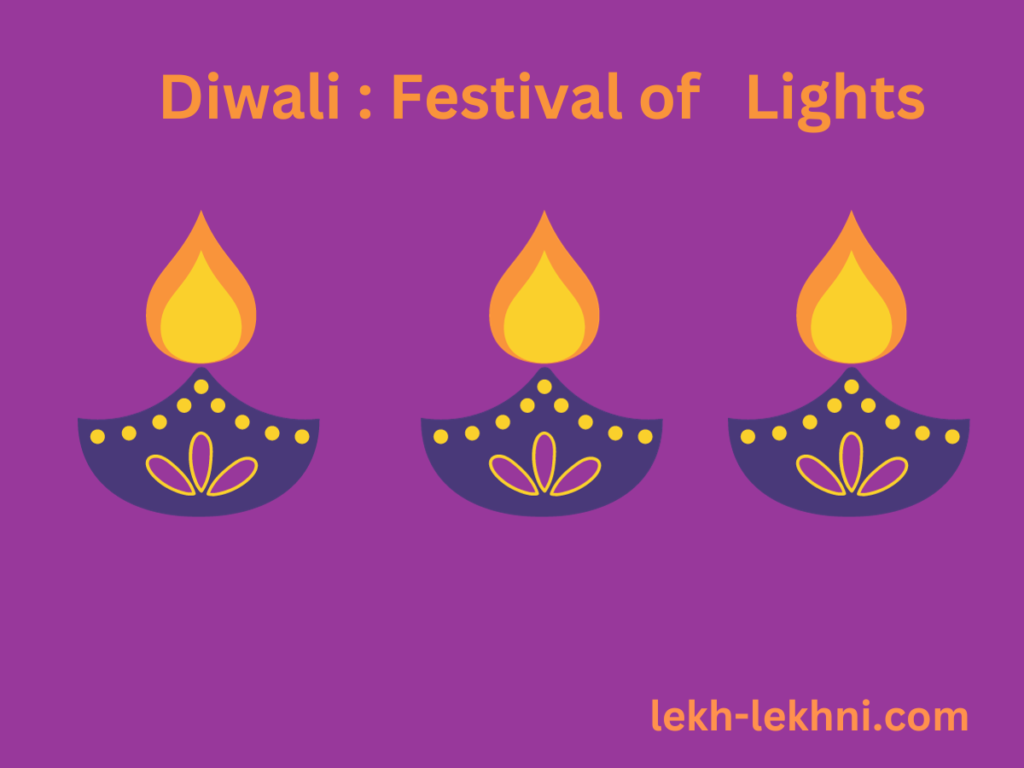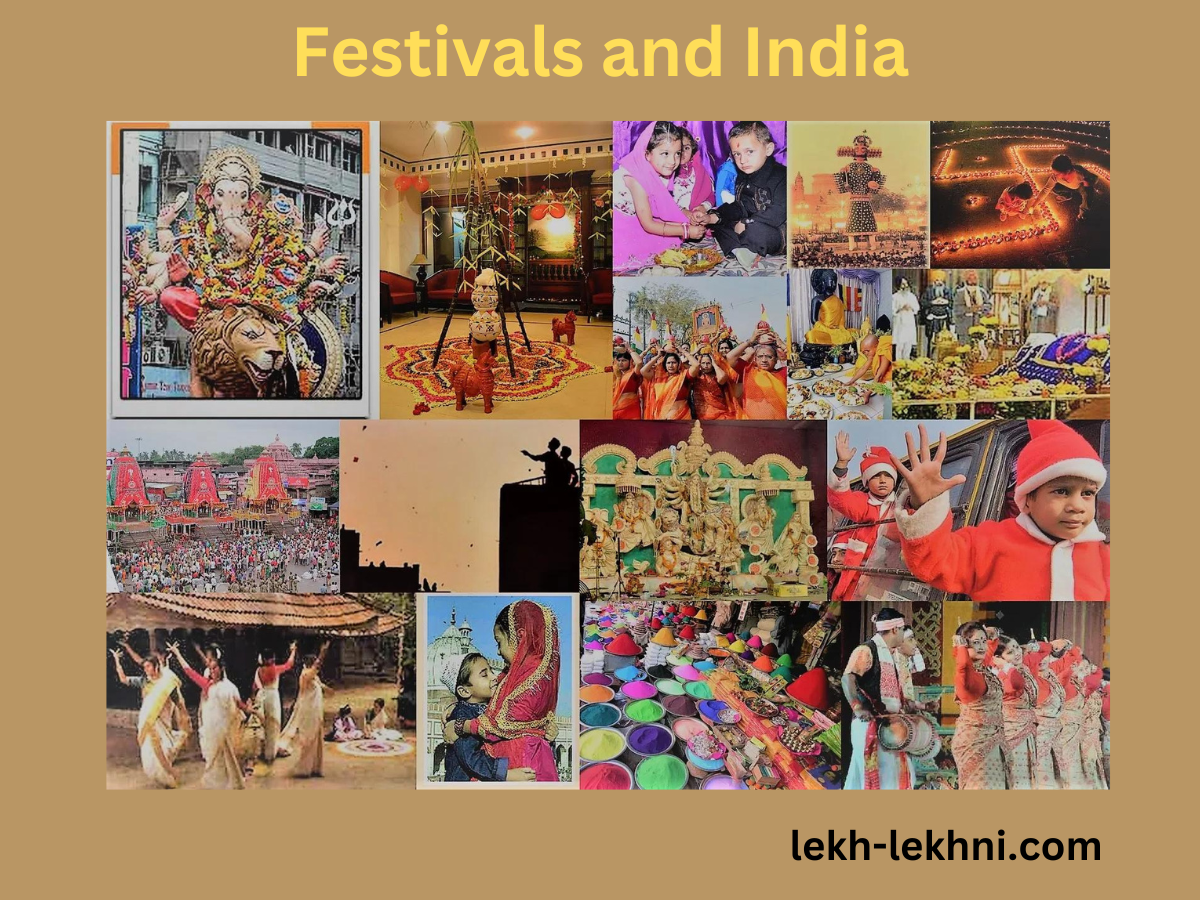A festival is an occasion of celebration, recreation, and ceremonies.
Diwali is just a few days away when I write this article, and India is witnessing super busy days in the market.
Diwali is one of the grandest festivals in India, no matter which state you belong to.
Festivals are here to rejuvenate tired people, to recuperate the economy, to re-establish faith in the ongoing time, to make sure that we are in transit according to nature, to pause for a while in a world entire of relentless work culture, to spend some quality time with near and dear ones and to enjoy the little moments of life while keeping aside some of our worries.

And not only Diwali but every festival has a profound impact on the momentary condition of any country. A nation builds its economy by balancing the use of its resources, creating decent job opportunities for its citizens, making a good market for its products, and generating revenue from the composite efforts of all the elements of the nation.
Day-to-day life will be dull without a few occasions to relax and relish our lives.
We have religious festivals, national festivals, and seasonal festivals in our kitty. In addition, we have several cultural festivals, like art festivals, music festivals, cinema festivals, literature festivals, and food festivals.
National festivals are official state ceremonies signifying statehood, state pride, or commemorating renowned personalities of the state; thus, they are unique as they create a sense of unity among the citizens.
We celebrate Religious festivals according to faith, sect, religion, communal, and spiritual beliefs; that’s why they differ; however, the whole concept of religious festivals substantiates the worship of the Almighty.
Seasonal festivals have a foundational connection with harvesting time and season change. Agriculture is the real backbone of any economy. When the weather changes, a new crop is sowed after harvesting the existing crop. Seasonal festivals are methods of symbolic celebration for people directly and indirectly associated with agriculture.
All works and nill enjoyments –
The history of leisure time, playtime, festivities, and amusements dates back to our primitive lifestyle when hunting was the primary sport.
There was a time when we had great empires that thrived on war and were always on the mission of winning territories, and that was their only leisure time. People used to entertain the influential ones, but with time, we felt the need for leisure, relaxing moments, and amusements.
The more we progressed, the more stressful our lives became. The analogy behind the stressful lifestyle is the increasing incidence of severe challenges and expectations from ourselves besides the mounting pressures of getting a quality life.
The little time we have left is vital to ensure that we have a life to live and are not mere puppets of fiercely competing life choices.
Festivals – It means a lot.
India has a vast tradition of celebrations of even trivial occasions.
Interestingly, India celebrates as many as 1000, and each festival has its distinct style of celebration.
With the brightest festival, Diwali, India generates as much as 1-2 lakh crores of revenue in a go.
The Diwali shopping list includes exotic jewelry, vehicles, decor items, different gift items for near and dear ones, clothes, string lights, earthen lamps, materials and stuff of worshipping Gods, sweets and snacks, kitchen items, electronic items, Gold coins, and Silver coins and crackers ( crackers are now banned in many states whereas there is an advisory from GOI to avoid bursting of crackers citing the worsening condition of pollution everywhere ).
The street markets buzz with business, and it provides some respite from any economic downturn.
A festival of lights, Diwali or Deepawali, is the epitome of balancing business, life, enjoyment, worshipping, unison, and exhibiting the importance of living the present moments.
A well-established economy balances the earnings, spending, and savings of the citizens besides the businesses that the country is known for.
Revenue generation in the off-season is always challenging for every country, and festivals have a rescuing role for the purpose. Festivals generate many cottage based employment opportunities for weaker sections of the society.
Even with unskilled workers and little financial support, festivals play a pivotal role in giving them a reason to smile.
Other sides of big gatherings during festivals –
Just a few days ago, while buying some stuff in the weekly market from a makeshift stall, the elderly couple who were selling the items complained about someone who gave them counterfeit currency, thus duping them. It is so unacceptable and uncalled for.
One of my relatives became a victim of pickpocketing. Cellphone snatching is rampant during large gatherings, and there is no help from the police.
The fake sweets business is another point of concern for us. Counterfeit stuff also harms revenue generation.
Illegal hoarding of essential items during festival season affects spending. Black marketing dampens the festive moods of the people. The misleading propaganda against other groups of society also affects the festivities. Fake and inaccurate social media forwards make situations even more difficult.
Keys of Economic Development –
Unless there is a positive contribution from all sections of society, it is not simple and easy to create any new means of economic development. Amidst all, festivals have a great place in our lives, a monotonous life mar all the lively essence of humanity. The negative-positive balancing of the social strata brings inclusiveness and significant equilibrium everywhere.


